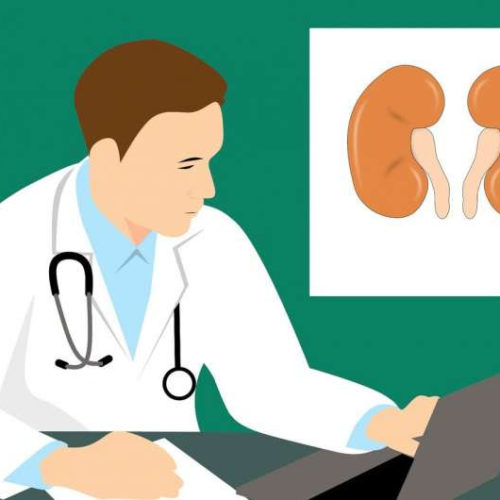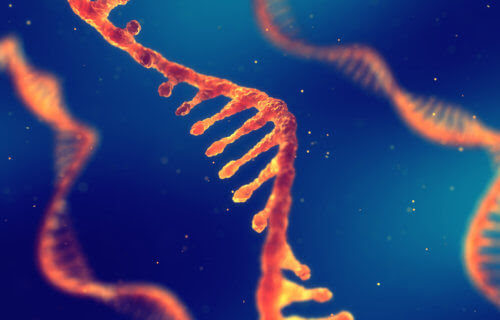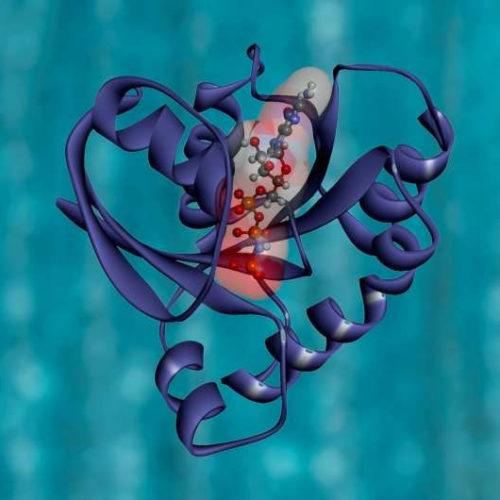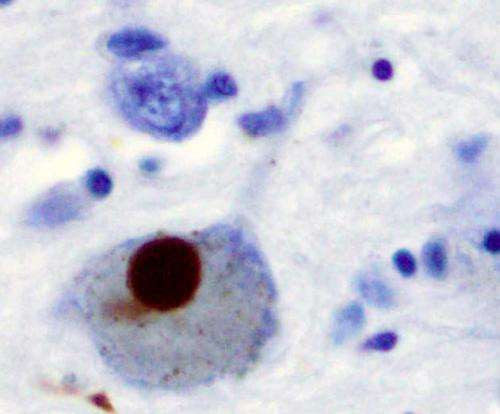By KYLIE STEVENS FOR DAILY MAIL AUSTRALIA PUBLISHED: 20:41 EST, 19 January 2021 | UPDATED: 20:45 EST, 19 January 2021 A surprising drug could become the first antibiotic class in 60 years to kill off resistant bacteria in diseases such as gonorrhoea, meningitis and legionnaires. Researchers at University of Queensland’s Institute for Molecular Bioscience have discovered a new use for cannabis in their...
Researchers uncover potentially promising therapeutic combination for renal cell carcinoma
by Beth Israel Deaconess Medical Center Credit: Pixabay/CC0 Public Domain Renal cell carcinoma (RCC) is the most common form of kidney cancer. In 2018, there were an estimated 403,000 new cases of RCC and 175,000 deaths due to kidney cancer worldwide. Currently, the 5-year survival rate for patients with metastatic RCC is only about 12 percent....
Fascinating new videos capture human RNA like it’s ‘never been seen in nature’
by Chris Melore EVANSTON, Ill. — The human body has trillions of cells. Each one contains the building blocks of life and now, for the first time, a study has discovered how some of those building blocks operate. Researchers from Northwestern University say they’ve created the first-ever, data-driven videos which reveal how RNA molecules twist and fold to...
COVID-19 (coronavirus): Long-term effects
COVID-19 symptoms can sometimes persist for months. The virus can damage the lungs, heart and brain, which increases the risk of long-term health problems. By Mayo Clinic Staff Most people who have coronavirus disease 2019 (COVID-19) recover completely within a few weeks. But some people — even those who had mild versions of the disease...
Chinese scientists may have key to delaying ageing
Tue, January 19, 2021, 9:49 PM Scientists in Beijing may be one step closer to having the answer to living longer and reversing the effects of ageing. A group of biologists at the Chinese Academy of Sciences say they have developed a world-first new gene therapy and have been running tests on mice. It involved...
Fatty acid may help combat multiple sclerosis
The abnormal immune system response that causes multiple sclerosis (MS) by attacking and damaging the central nervous system can be triggered by the lack of a specific fatty acid in fat tissue, according to a new Yale study. The finding suggests that dietary change might help treat some people with autoimmune disease. Image credit: Stephanie...
Rush researchers demonstrate success with new therapy for COVID-19
RUSH UNIVERSITY MEDICAL CENTER A new therapy developed by researchers at Rush University Medical Center is showing success as a way to prevent COVID-19 symptoms in mice. In a study published in the Journal of Neuroimmune Pharmacology, mouse models with COVID-19 showed positive results when a small peptide was introduced nasally. The peptide proved effective in reducing fever, protecting...
Stanford study reveals immune driver of brain aging
STANFORD MEDICINE Suppose Smokey the Bear were to go on a tear and start setting forest fires instead of putting them out. That roughly describes the behavior of certain cells of our immune system that become increasingly irascible as we grow older. Instead of stamping out embers, they stoke the flames of chronic inflammation. Biologists...
Proteomic analysis reveals when and how which proteins are degraded in cancer cells by autophagy pathways
by Karolinska Institutet Credit: Unsplash/CC0 Public Domain A fundamental process by which cellular components are degraded is autophagy. Defects in autophagy pathways are strongly associated with multiple human diseases, including neurodegenerative disorders and cancer. Despite their importance, to date, a comprehensive characterization of the extent and selectivity for Autophagic degradomes has remained largely uncharacterized. Researchers at Karolinska Institutet...
New Parkinson’s disease therapeutics discovered
by American Associates, Ben-Gurion University of the Negev Immunohistochemistry for alpha-synuclein showing positive staining (brown) of an intraneural Lewy-body in the Substantia nigra in Parkinson’s disease. Credit: Wikipedia Ben-Gurion University of the Negev researchers have discovered that the protein BMP5/7 offers promising therapeutics that could slow down or halt the progression of Parkinson’s disease. The findings were published...






